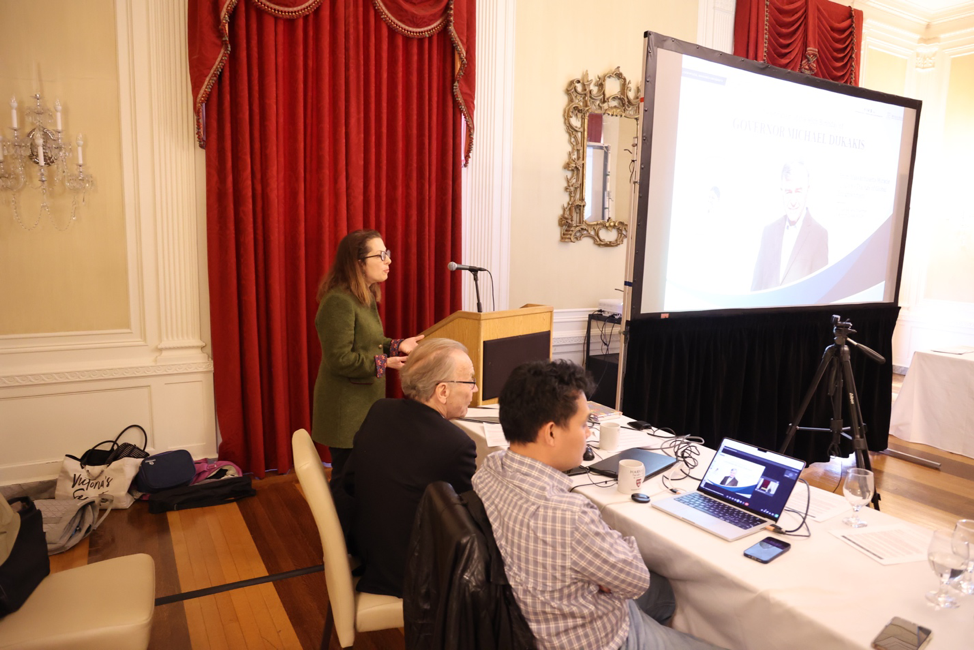On November 2, 2023, at Harvard University Loeb House, during the BGF Conference commemorating the 90th birthday of Governor Dukakis, Co-founder and Chair of BGF, Northeastern Professor Beth Noveck, the first United States Deputy Chief Technology Officer under President Obama, spoke. She was senior advisor for Open Government for UK Prime Minister David Cameron, and between 2018-2021, served on Chancellor Angela Merkel’s Digital Council. Here are the keynotes from her speech:
Firstly, happy birthday Governor Michael Dukakis. I moved to Northeastern a year ago due to collaboration with the Dukakis Center, enabling me to lead the new Center for Social Change. I moved to Northeastern just a year ago, mainly due to a collaboration with the Dukakis Center and the values created as a legacy at various institutions. This enabled me to take up my new position as the Director of our new university-wide Center for Social Change. I’ll hide back here for a moment and say that this week, many of us interested in AI were faced with a 20,000-word, 111-page executive order from the White House. Surprisingly, there’s no mention of democracy or engaging the public in these documents.
I came today to express my concern about what this risk mindset does for us. There is a missed opportunity to fully realize the benefits of AI, particularly the distinctly human benefits, if we do not prioritize those opportunities. We need investment in policy research dollars and attention to using AI to strengthen our democracy. This is not a theoretical prescription; there is work ongoing that we can support, such as the Collective Intelligence Project, which uses AI for scalable conversations about AI benefits and risks.
This risk mindset is concerning, and we need to focus on realizing the benefits by incorporating the distributed wisdom of people. This involves innovative projects, like the one I’m involved in at Northeastern, called Policy Synth, and collaborations with institutions and tools like urbanist AI in Helsinki or the Dutch cycling lifestyle platform. In conclusion, while being wary of risks, we should resist fear-mongering that impedes our ability to ask and answer, “What can we do with these powerful technologies to realize the vision of AI for good?” If we fail to ask and answer how we can use AI to improve democracy, we will miss a crucial opportunity. We must focus on using AI to unlock artificial intelligence to enable collective intelligence.
